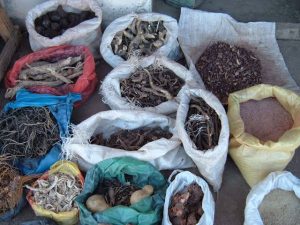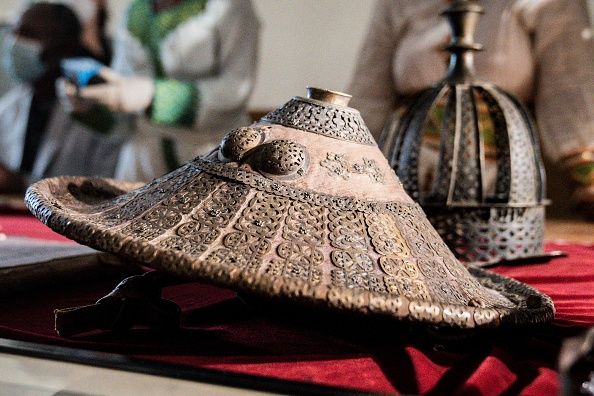
African traditional medicine is the oldest, and perhaps the most assorted, of all therapeutic systems. Africa is considered to be the cradle of mankind with a rich biological and cultural diversity marked by regional differences in healing practices. African traditional medicine in its varied forms is holistic involving both the body and the mind.

The traditional healer typically diagnoses and treats the psychological basis of an illness before prescribing medicines, particularly medicinal plants to treat the symptoms. The sustained interest in traditional medicine in the African healthcare system can be justified by two major reasons. The first one is inadequate access to allopathic medicines and western forms of treatments, whereby the majority of people in Africa cannot afford access to modern medical care either because it is too costly or because there are no medical service providers. Second, there is a lack of effective modern medical treatment for some ailments such as malaria and/or HIV/AIDS, which, although global in distribution, disproportionately affect Africa more than other areas in the world.

The most common traditional medicine in common practice across the African continent is the use of medicinal plants. In many parts of Africa, medicinal plants are the most easily accessible health resource available to the community. In addition, they are most often the preferred option for the patients. For most of these people, traditional healers offer information, counseling, and treatment to patients and their families in a personal manner as well as having an understanding of their patient’s environment Indeed, Africa is blessed with enormous biodiversity resources and it is estimated to contain between 40 and 45,000 species of plant with a potential for development and out of which 5,000 species are used medicinally. This is not surprising since Africa is located within the tropical and subtropical climate and it is a known fact that plants accumulate important secondary metabolites through evolution as a natural means of surviving in a hostile environment. Because of her tropical conditions, Africa has an unfair share of strong ultraviolet rays of the tropical sunlight and numerous pathogenic microbes, including several species of bacteria, fungi, and viruses, suggesting that African plants could accumulate chemopreventive substances more than plants from the northern hemisphere. Have observed that of all species of Dorstenia (Moraceae) analysed, only the African species, Dorstenia mannii Hook.f, a perennial herb growing in the tropical rain forest of Central Africa contained more biological activity than related species.
Nonetheless, the documentation of medicinal uses of African plants and traditional systems is becoming a pressing need because of the rapid loss of the natural habitats of some of these plants due to anthropogenic activities and also due to an erosion of valuable traditional knowledge.

It has been reported that Africa has some 216 million hectares of forest, but the African continent is also notorious to have one of the highest rates of deforestation in the world, with a calculated loss through deforestation of 1% per annum. Interestingly, the continent also has the highest rate of endemism, with the Republic of Madagascar topping the list by 82%, and it is worth to emphasize that Africa already contributes nearly 25% of the world trade in biodiversity. Nonetheless, the paradox is that in spite of this huge potential and diversity, the African continent has only few drugs commercialized globally.
Scientific literature has witnessed a growing number of publications geared towards evaluating the efficacy of medicinal plants from Africa which are believed to have an important contribution in the maintenance of health and in the introduction of new treatments. Nonetheless, there is still a dearth of updated comprehensive compilation of promising medicinal plants from the African continent. Africanewsguru update.













